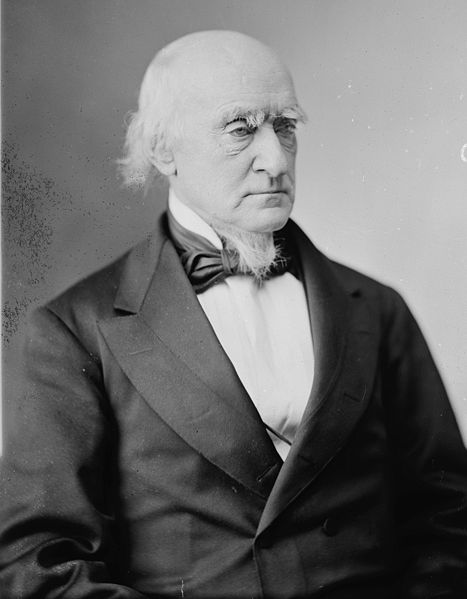John Archibald Campbell was an American jurist. He was a successful lawyer in Georgia and Alabama, where he served in the state legislature. Appointed by Franklin Pierce to the United States Supreme Court in 1853, he resigned at the beginning of the American Civil War, traveled south and became an official of the Confederate States of America. After serving six months in a military prison at war's end, he secured a pardon and resumed his law practice in New Orleans, where he also opposed Reconstruction.
John Campbell, by Mathew Brady, c. 1870-80
Portrait of John A. Campbell, c. 1870s
Judge John A. Campbell
Campbell's gravesite
Franklin Pierce was an American politician who served as the 14th president of the United States from 1853 to 1857. A northern Democrat who believed that the abolitionist movement was a fundamental threat to the nation's unity, he alienated anti-slavery groups by signing the Kansas–Nebraska Act and enforcing the Fugitive Slave Act. Conflict between North and South continued after Pierce's presidency, and, after Abraham Lincoln was elected president in 1860, the Southern states seceded, resulting in the American Civil War.
Portrait by Mathew Brady, c. 1855–1865
The Franklin Pierce Homestead in Hillsborough, New Hampshire, where Pierce grew up, is now a National Historic Landmark. He was born in a nearby log cabin as the homestead was being completed.
Novelist Nathaniel Hawthorne, a lifelong friend of Pierce, wrote the biography The Life of Franklin Pierce in support of Pierce's 1852 presidential campaign.
Pious and reserved, Jane Pierce was her husband's opposite in many ways.








